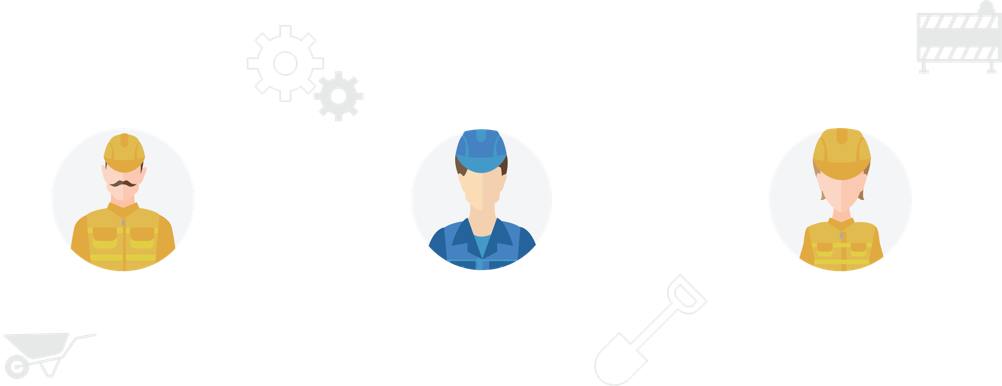
Automotive Painters, also known as Refinishing Specialists, are involved in motor vehicle damage appraisal, surface preparation, minor damage repair, masking, colour matching, priming, and mixing paint and top coating.
Job Related Skills, Interests and Values
- Analyzing, assessing, and evaluating exterior paint condition of various motor vehicles; selecting appropriate corrective action or method of repair
- Using abrasives, solvents, or chemicals to identify and remove layers of sub-coatings
- Preparing surfaces using power and manual sanding equipment; applying masking and sanding techniques
- Completing minor damage repair prior to masking; applying priming and top coating using spray guns
- Using an eye for detail and good colour sense to match complex colour formulations
- Applying refinishing products in the correct sequence for proper adhesion and durability
- Applying or restoring anti-corrosion treatments
- Using good manual dexterity to apply decals, transfers, stencils, and other types of identification to finished paint work on various types of vehicles
- Effectively communicating and interacting with co-workers and customers
What Preparation and Training Do You Need?
- Secondary school diploma or equivalent; math, English, and shop credits an asset
- Completion of a 4,800-hour apprenticeship, including on-the-job and in-school training
- Exam to obtain Certificate of Qualification
What's Your Future as a Automotive Painter (410N)?
- Full-time, indoors in shops that can be dusty and dirty
- Exposure to exhaust fumes, dust particles, chemicals, and solvents
- Employers include auto body repair shops, automotive and truck dealerships, trucking companies and bus lines, and custom shops
Wage Rate
Apprentice wage increases with skill and experience. Fully qualified workers earn an average of $25.00-$37.50 per hour.
Self-Rating
Automotive Painter (410N)
| Ask Yourself: | Yes | No |
|---|---|---|
| Do you have good hand-eye coordination? Do you pay attention to details? | ||
| Do you enjoy working with numbers and have good mathematical skills? | ||
| Do you like to do different tasks each day? | ||
| Are you able to follow Health & Safety guidelines? Are you able to sit or stand for long periods of time? | ||
| Are you able to spot differences? Are you a creative person? Can you work well with colours? | ||
| Are you interested in continual learning? Do you enjoy using different equipment and hand tools to complete a job? | ||
| Are you reliable, a self-starter and able to work with minimal supervision? Can you start and finish work on time? |
If you checked YES to the majority of these questions, a career as an Automotive Painter (410N) may be for you!
You might want to look at these similar trades as well;
- Sheet Metal Worker
- Aircraft/Avionics Technician
- Automotive Service Technician
- Motorcycle Mechanic
- Painter/Decorator
Sheet metal workers fabricate, assemble, install, and repair sheet metal products.
Alignment & Brakes Technicians inspect, diagnose, and repair electrical and electronic controls, suspension systems and frames, and braking and steering systems, as well as tires, wheels, rims, and hubs. They also perform alignment on motor vehicles and may, at some point in their career, choose to specialize in alignment and brake systems.
A Residential & Commercial Painter/Decorator (404C) applies decorative and protective finishes to various surfaces in residential and commercial settings. An Industrial Painter/Decorator (404D) works in commercial and industrial settings to prepare a variety of surfaces prior to applying protective finishes, including paint, high performance coatings, waterproofing, fireproofing, and specialty finishes.
Motorcycle Technicians assemble, maintain, repair, and restore motorcycles and other multi-wheeled all-terrain vehicles that weigh less than 450 kilograms.
Automotive Service Technicians, sometimes referred to as Motor Vehicle Mechanics, inspect, diagnose, repair, and service mechanical, electrical, and electronic systems and components for cars, buses, and trucks. They also perform major repair and replacement of mechanical units on newly assembled motor vehicles. Technicians may choose to specialize in engine and fuel systems, brakes, drive lines, suspension, electrical and electronic systems, or diagnostic services.
Transmission Technicians inspect, diagnose, repair, and service manual, automatic, electrical, and electronic controls for cars, buses, and trucks. They may also perform major repair and replacement of mechanical units on newly assembled motor vehicles.